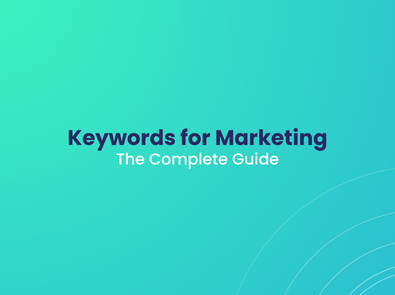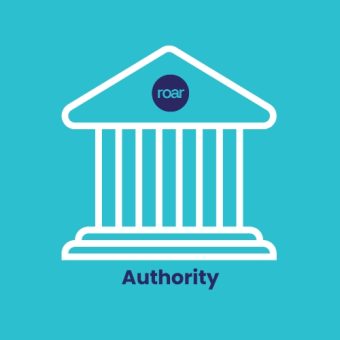This guide will teach you everything you need to know about keywords for marketing – how to find them, how to use them, and how to make them work for you—with practical tips to enhance your marketing strategy for 2025.
Keywords are the foundation of your marketing activities. They’re essential for optimising your website, crafting impactful ad campaigns, and creating content that truly resonates with users and search engines. Mastering the art of using keywords effectively and authentically is key to marketing in 2025.
What are keywords in marketing?
Keywords are specific words or phrases that users type into search engines to find information. For marketers, they represent the core of an effective digital strategy, allowing brands to position themselves in front of the right audience.
Types of keywords
- Short-tail keywords
These are generic and high-volume phrases, such as “shoes.” While they attract a broad audience, their competition is fierce, and conversion rates tend to be lower. - Long-tail keywords
Longer, more specific phrases, such as “comfortable running shoes for women.” These often have lower search volume but higher intent, making them great for targeting niche audiences. - LSI keywords
Latent Semantic Indexing (LSI) keywords are related terms that add context to your content. For example, if your primary keyword is “digital marketing,” LSI keywords might include “online advertising” or “social media strategy.” - Geo-specific keywords
These are location-based phrases, like “SEO agency in Manchester.” They’re especially useful for local businesses looking to attract nearby customers.
If you’re not feeling confident about the success of your account, you may be targeting the wrong type keywords, it’s one of the most common Google ads conversion rate issues.
Why keywords are crucial for your marketing strategy
1. Enhancing visibility
Search engines rely on keywords to understand what your content is about. By strategically placing keywords, and variations, you improve your chances of appearing in relevant search results.
2. Aligning with search intent
Understanding user intent—whether informational, navigational, or transactional—helps you choose the right type of keywords for your marketing goal. For instance:
- Informational intent: “How to bake a cake.”
- Navigational intent: “BBC Recipes.”
- Transactional intent: “Buy cake decorating supplies.”
Read more about keyword intent in PPC.
3. Driving conversions
Targeting long-tail keywords can result in higher conversions. For example, a user searching for “best organic dog food in the UK” is likely more ready to make a purchase than someone searching “What is organic dog food?”
How to research keywords for marketing
Step 1: Identify core topics
Think about the services or products you offer. For example, if you run a digital marketing agency, topics might include SEO, PPC, and social media marketing.
Step 2: Use keyword research tools
- Google Keyword Planner: A free tool for identifying keyword volume and competition, most commonly used for paid search campaigns.
- AnswerThePublic: Generates questions and topics around your keywords, great for FAQs.
Step 3: Analyse competitors
Search for your core keywords and analyse the top-ranking pages. Tools like Ahrefs or SEMrush can help you uncover the keywords your competitors are targeting. You can often find gaps in their content, or places where you could easily outrank them and start increasing your website traffic.
Step 4: Prioritise based on metrics
Focus on keywords with a balance of:
- Search volume: How often the term is searched.
- Competition: How hard it is to rank.
- Relevance: How well it aligns with your audience.
Best practices for using keywords in marketing
1. Optimise your website
- Include primary keywords in:
- Page titles: E.g., “Top Tips for Choosing Keywords for Marketing.”
- Meta descriptions: Summarise the page content and include the keyword.
- Headings: Use keywords in H1, H2, and H3 tags.
- Incorporate secondary and related keywords naturally within the content.
2. Create keyword-rich blog content
Write articles targeting long-tail keywords that answer specific audience queries. For example, “How to Use Keywords for Marketing to Boost SEO.” The search volume may be lower but this also means less competiton for your post.
3. Integrate keywords in paid ads
Ensure your ad copy and landing pages align with your target keywords to improve quality scores and reduce costs through wasted clicks.
4. Leverage local SEO
If your business depends on local customers or only targets a specific area, therefore, including location-based keywords like “London property agent” to attract clients specifically in your area.
How to measure the success of your keyword strategy
Key metrics
- Keyword rankings: Use tools like Google Search Console to track your rank position.
- Organic traffic: Check for growth in visitors from non-paid search.
- Bounce rate: Lower rates indicate that visitors find your content relevant.
- Conversion rate: Measure the percentage of visitors completing a desired action (e.g., filling out a form).
Common mistakes to avoid
- Keyword stuffing
Cramming keywords unnaturally into content can lead to penalties and poor user experience. Search engines are wise to this now and will down-rank your content if they determine it to be inauthentic. - Neglecting user intent
Using keywords without understanding search intent results in mismatched content and high bounce rates. - Ignoring long-tail keywords
While they have lower search volumes, long-tail keywords often deliver a better ROI.
Conclusion
Keywords are the foundation of any successful marketing strategy. By focusing on the right keywords for marketing, you can improve your visibility, connect with your target audience, and drive measurable results.
If you’d like to understand which keywords you should be targeting speak to a member of our SEO team. They can assist with content structure, target keywords and more to increase your organic traffic.
FAQs
What are seed keywords?
Seed keywords are the starting terms for your research, typically broad and descriptive.
How can I identify my competitors’ keywords?
Use tools like Ahrefs or SEMrush to analyse competitor websites and uncover the keywords they rank for.
What’s the ideal keyword density?
While there’s no fixed percentage, aim for natural usage—usually around 1-2% of the total word count.
Can I target multiple keywords in one blog?
Yes, but ensure they are related and don’t dilute the focus of your content and the best practise for this is to use variations of your keyword, i.e. “Running shoes for women” and “Women’s running shoes.”
How do I optimise for voice search?
Focus on conversational, question-based long-tail keywords, such as “What are the best keywords for marketing?”



